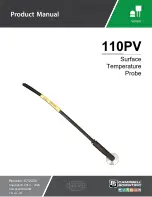
If leakage ...
Then ...
Continues
Depressurize the system and retighten the bonnet fasteners as noted
above. (maximum 3rd re-torque)
Continues
Replace the valve diaphragm.
For more information, see
4.10 Replace the valve diaphragm on page 12
4.6 Fastener torque table for valve body to topworks
Values given are for lubricated fasteners.
Valve size
Bolt size
PTFE diaphragm
Elastomer diaphragm
DN
Inch
Metric
Imperial
N-m
in-lb
N-m
in-lb
Bio-Tek
(8, 10, 15)
Bio-Tek
(0.25, 0.375,
0.50)
M4
#6
2.3-2.8
20-25
2.3-2.8
20-25
15
0.50
M6
1/4"
2.8-6.8
25-60
2.3-4.5
20-40
20
0.75
M6
1/4"
5.7-9.1
50-65
2.3-5.7
20-50
25
1.00
M8
5/16"
7.4-11.3
65-90
5.1-7.9
45-70
40
1.50
M10
3/8"
23-25
200-225
8.5-14.7
75-130
50
2.00
M12
7/16"
25-31
225-275
11-20
100-180
4.7 Actuator operating pressure
Maximum permitted air supply pressure
bar
kPA
psi
6.2
620
90
Actuator pressure rating
The actuator will withstand pressures well in excess of the rated pressure without risk of bursting. Main-
taining operating pressure at or below the pressure rating will ensure optimum life of the operating com-
ponents, such as the actuator diaphragm. However, operation at pressures up to 10.3 bar | 150 psig, for
limited periods of time, will not noticeably affect the life of these components.
bar
kPA
psi
6.2
620
90
4.8 Set the adjustable opening stop
If you have a series 3, 5, 8, 16 actuator, then follow the steps below:
1.
Remove the switch package, if present.
2.
Using air pressure and a bleed type regulator, open the valve to the desired position.
3.
Rotate the adjusting bushing counterclockwise until resistance is felt. The opening stop is now
set.
4.
Adjust the valve closed switch.
4.6 Fastener torque table for valve body to topworks
Advantage® 2.1 Actuator Installation and Operation Manual
11


































